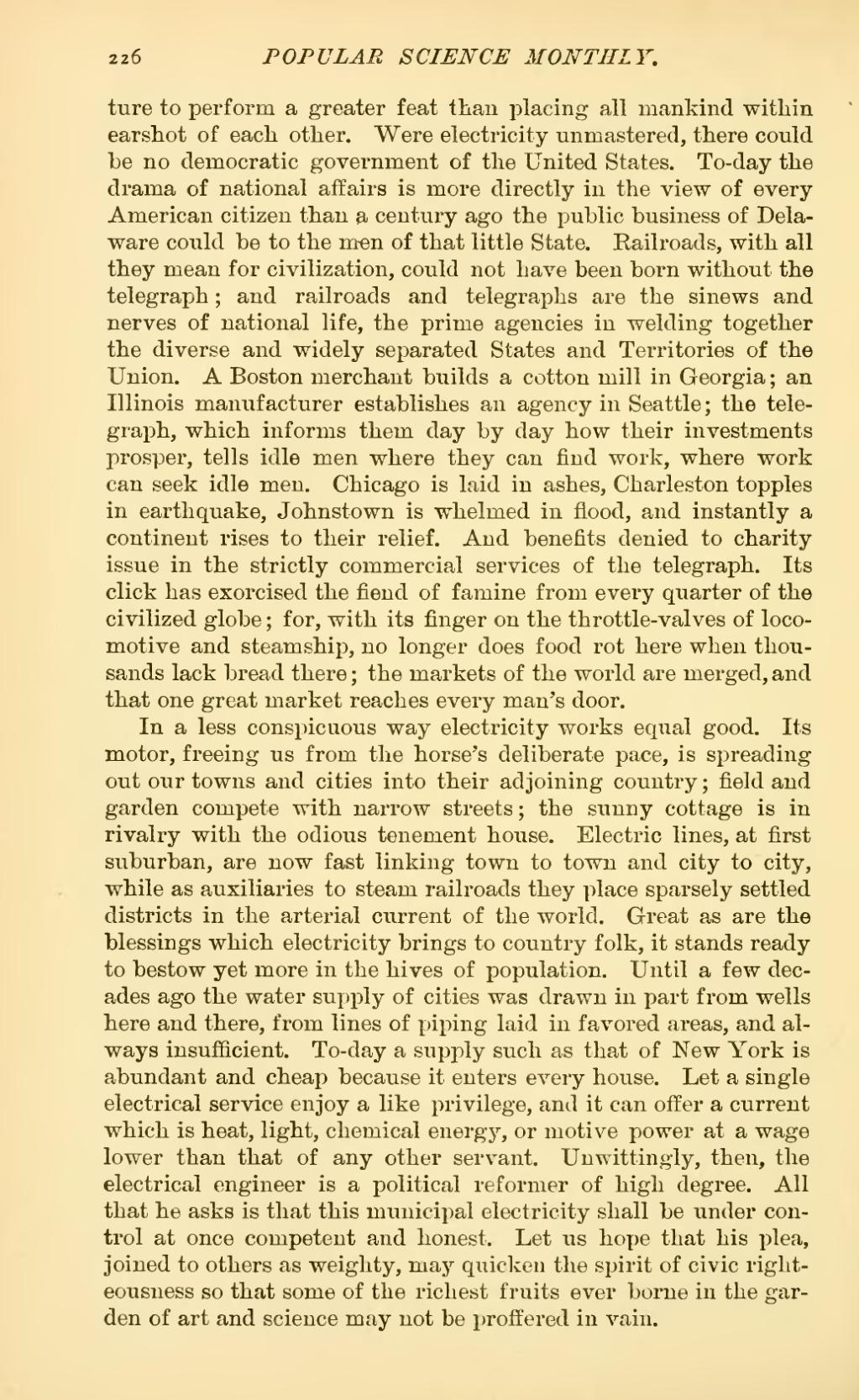ture to perform a greater feat than placing all mankind within earshot of each other. Were electricity unmastered, there could be no democratic government of the United States. To-day the drama of national affairs is more directly in the view of every American citizen than a century ago the public business of Delaware could be to the men of that little State. Railroads, with all they mean for civilization, could not have been born without the telegraph; and railroads and telegraphs are the sinews and nerves of national life, the prime agencies in welding together the diverse and widely separated States and Territories of the Union. A Boston merchant builds a cotton mill in Georgia; an Illinois manufacturer establishes an agency in Seattle; the telegraph, which informs them day by day how their investments prosper, tells idle men where they can find work, where work can seek idle men. Chicago is laid in ashes, Charleston topples in earthquake, Johnstown is whelmed in flood, and instantly a continent rises to their relief. And benefits denied to charity issue in the strictly commercial services of the telegraph. Its click has exorcised the fiend of famine from every quarter of the civilized globe; for, with its finger on the throttle-valves of locomotive and steamship, no longer does food rot here when thousands lack bread there; the markets of the world are merged, and that one great market reaches every man's door.
In a less conspicuous way electricity works equal good. Its motor, freeing us from the horse's deliberate pace, is spreading out our towns and cities into their adjoining country; field and garden compete with narrow streets; the sunny cottage is in rivalry with the odious tenement house. Electric lines, at first suburban, are now fast linking town to town and city to city, while as auxiliaries to steam railroads they place sparsely settled districts in the arterial current of the world. Great as are the blessings which electricity brings to country folk, it stands ready to bestow yet more in the hives of population. Until a few decades ago the water supply of cities was drawn in part from wells here and there, from lines of piping laid in favored areas, and always insufficient. To-day a supply such as that of New York is abundant and cheap because it enters every house. Let a single electrical service enjoy a like privilege, and it can offer a current which is heat, light, chemical energy, or motive power at a wage lower than that of any other servant. Unwittingly, then, the electrical engineer is a political reformer of high degree. All that he asks is that this municipal electricity shall be under control at once competent and honest. Let us hope that his plea, joined to others as weighty, may quicken the spirit of civic righteousness so that some of the richest fruits ever borne in the garden of art and science may not be proffered in vain.
